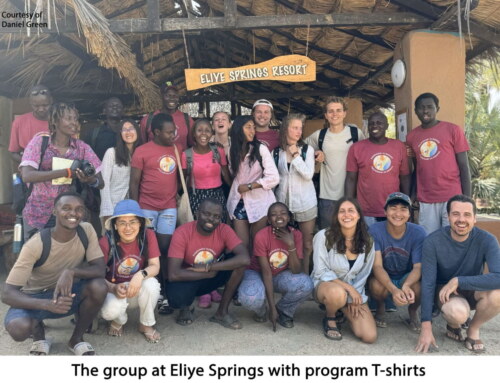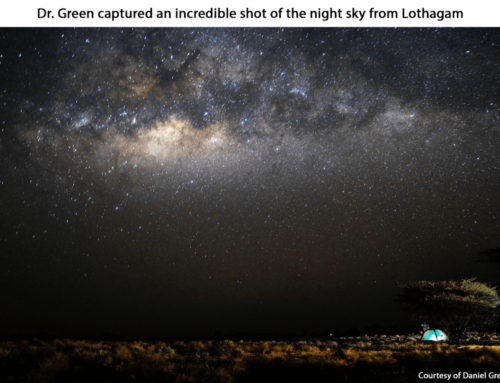The Turkana Basin Institute’s Origins Field School started off this week with the students exploring the African Savannah and meeting some of the amazing creatures that call this ecosystem home. We were very lucky to spend three days at Mpala Ranch in Laikipia where we had some incredible sightings of wildlife, while learning about the ecology of the African Savannah.
Our adventure began before breakfast on Saturday morning when a pack of African Wild Dogs chased down an Impala in front of the camp.
After breakfast we set off on a drive to look at the animals and learn about their ecology and behaviour.
One of the first sightings we had was of the Grevy’s Zebra, which are an endangered species, found in Northern Kenya, and distinct from the Common or Plains Zebra.
In the evening, we had a talk from the ‘Living With Lions’ project by Steven Ekwanga and Mark Apao, who explained to the students the challenges of conserving lions in an area where people are mainly dependent on livestock through reducing conflict by providing better ‘bomas’ (livestock enclosures) and increasing community awareness.























